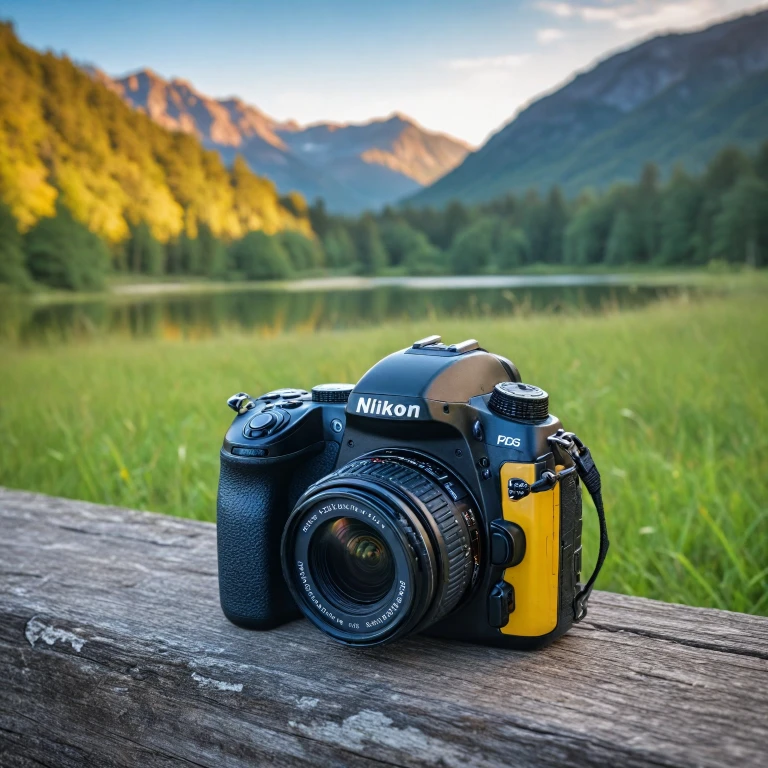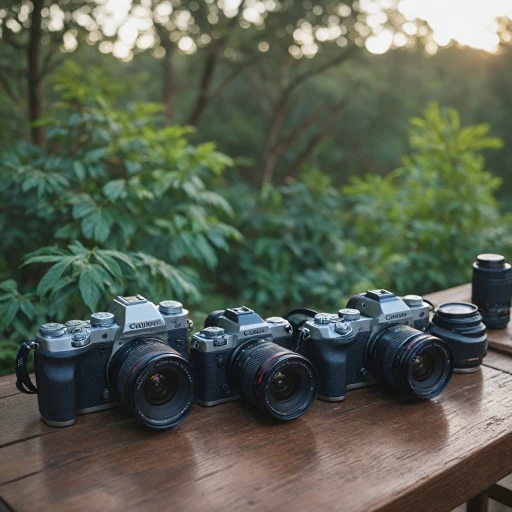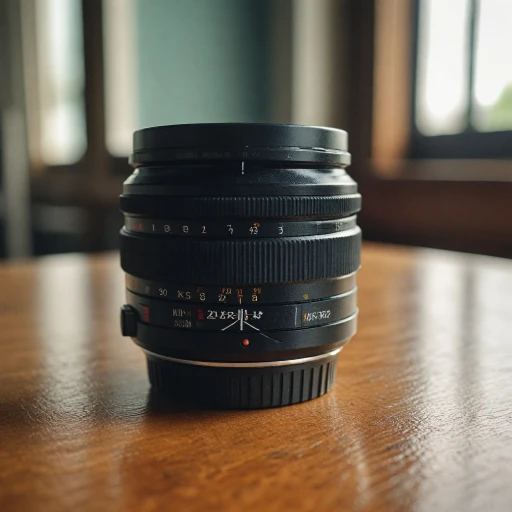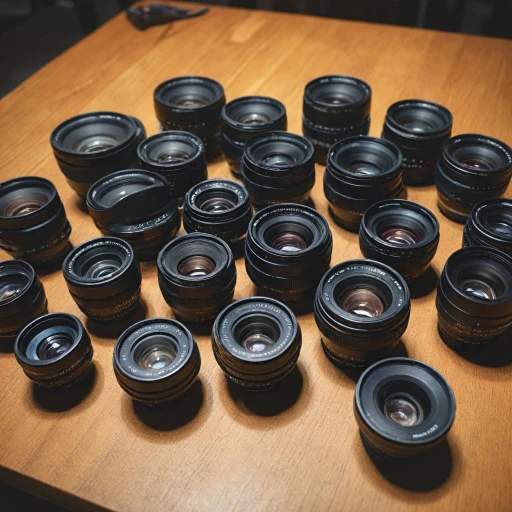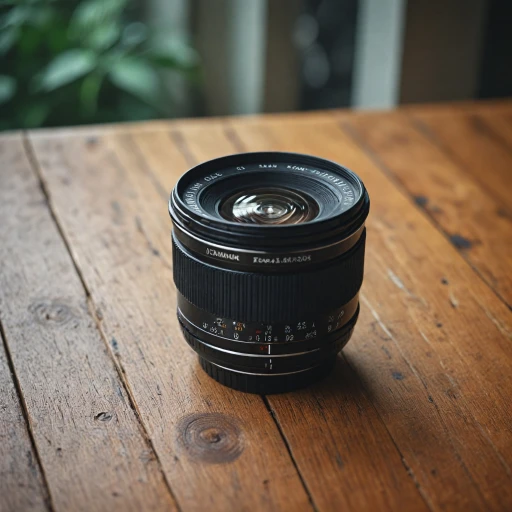
Understanding Your Nikon D7500 Battery
Grasping the Essential Features
To truly maximize the performance of your Nikon D7500 battery, understanding its core components is crucial. The Nikon D7500, like many digital cameras, relies on lithium-ion battery packs designed to offer optimal power for your photographic needs, including the use of additional features like the camera lens and shutter release mechanisms. The battery’s compatibility with Nikon’s specific chargers ensures efficient recharging and longer battery life, a key factor in maintaining the camera's performance.
Most Nikon cameras, including the D7500, use a battery charger that connects seamlessly with these lithium-ion cells, providing a consistent energy flow to power up your device. Incorporating the right battery practices can significantly contribute to prolonging its lifespan, aiding photographers in achieving optimal results in their shooting endeavors. Understanding power requirements and efficient charging practices can alleviate many common issues faced by users.
With numerous battery products available on the market, knowing the specifications of your Nikon D7500 battery is essential. Before adding an item to your cart, verify the battery's compatibility with your camera and the specific charger for Nikon devices. This attention to detail will not only enhance your photography experience but also ensure customer satisfaction by minimizing return shipping if a product doesn’t meet expectations. Explore essential battery accessories to optimize your camera setup further.
Tips for Extending Battery Life
Prolonging the Life of Your Nikon Battery
Making the most out of your Nikon D7500 battery hinges on understanding how to effectively manage its lifespan. As photographers, ensuring that our digital cameras are always ready for capturing the perfect shot is paramount. Here are some practical tips for stretching the performance of your camera battery without interrupting your creative flow.
- Optimize Camera Settings: Adjust settings like screen brightness and auto power-off to conserve battery life. Nikon cameras often have customizable options that, when fine-tuned, reduce energy consumption significantly.
- Airplane Mode: When not needing the wireless features, keep airplane mode activated to avoid unnecessary battery drain during shoots.
- Environment Considerations: Cold temperatures can affect battery performance, so plan accordingly if you’re venturing into cold environments. Keep batteries warm but not subject to overheating.
- Regular Charging Cycles: Avoid overcharging your ion battery and regularly allow it to fully discharge before recharging. This can help maintain its optimal power capacity over time.
- Backup Batteries: Consider having additional battery packs on hand. Having a spare, fully charged camera battery ensures you're not caught off guard during important shoots.
For those who are exploring rechargeable options, including variations of lithium-ion power, remember that higher capacity batteries might offer better performance for your Nikon digital cameras. And if you’re comparing different options, you might want to add the Fujifilm NP-W126S Li-ion Battery Pack to your comparison list for a broader perspective on available products.
Implementing these habits can help you avoid frequent return shipping of batteries, ensuring a seamless photography experience. Always ensure that items like your charger and battery are properly stored and handled to prevent any damage or malfunction. Taking these steps will not only maximize your Nikon camera usage but also add longevity to your equipment investments.
Common Battery Issues and Solutions
Solutions to Battery Concerns
Ensuring the longevity of your Nikon D7500 battery involves a basic understanding of some common battery-related issues and their practical resolutions. Addressing these concerns effectively can greatly enhance your camera's performance and reduce downtime.- Charger Malfunctions: A reliable charger is crucial for keeping Nikon battery packs fully powered. If your charger seems faulty or the power output is inconsistent, consider replacing it with a Nikon-certified product. This can prevent irregular charging cycles that may lead to quicker battery deterioration.
- Temperature Sensitivity: Camera batteries, particularly lithium ion, are sensitive to temperature fluctuations. While Nikon cameras boast robust designs, avoid exposing them to extreme temperatures. Keep your battery in a moderate climate to ensure it doesn’t drain too quickly, especially if shipping cameras for professional use.
- Battery Pack Swelling: Swelling can be a sign of battery failure and may pose risks to both your camera and safety. If you notice your battery pack is bulging, discontinue use and seek a return item request through either official customer support or reliable retail platforms like eBay, respecting return shipping policies.
- Power Drain: Battery packs may suffer from excessive power drain if your camera settings aren’t optimized. Mitigate this by managing features like shutter release intervals and memory card usage efficiently. Balancing these functions will maximize your Nikon's battery capacity.
Choosing the Right Replacement Battery
Finding the Perfect Replacement for Your Nikon D7500
When it comes to replacing your Nikon D7500 battery, choosing the right one is crucial for maintaining your camera's performance. With a variety of options available, it's important to consider several factors to ensure you get the best fit for your needs.
- Compatibility: Ensure the battery is specifically designed for the Nikon D7500. Using a compatible battery pack will prevent potential issues with power delivery and fit.
- Battery Type: Opt for a lithium-ion battery, as it offers a good balance between capacity and weight. These batteries are known for their longevity and efficiency, making them ideal for digital cameras.
- Brand and Quality: While third-party batteries can be more affordable, it's often safer to stick with reputable brands. Nikon batteries are designed to work seamlessly with Nikon cameras, reducing the risk of damage or malfunctions.
- Customer Reviews: Check reviews from other photographers to gauge the reliability and performance of the battery. Feedback from users can provide insights into real-world performance and potential issues.
- Return Policy: Consider the return shipping policy of the seller. In case the battery doesn't meet your expectations, a flexible return policy will make the process smoother.
- Shipping and Availability: Look for sellers who offer quick shipping options. This ensures you won't be left without a working battery for long periods, especially if you're on a tight schedule.
By carefully evaluating these factors, you can confidently select a replacement battery that will keep your Nikon D7500 powered and ready for action. Remember, investing in a quality battery is investing in the longevity and reliability of your camera.
Battery Maintenance Best Practices
Mastering the Art of Battery Care
To ensure your Nikon D7500 battery remains reliable throughout your photography adventures, incorporating some best practices for maintenance is key. Here are steps every Nikon enthusiast should consider:- Proper Charging Habits: Use the charger designed by Nikon or a compatible one to avoid any charging issues. Ensure your battery charger is free from dust and moisture to maintain the charging efficiency. Regularly cleaning the charger contacts can significantly reduce any charging interruptions.
- Storage Solutions: When your camera won't be in use for an extended period, store the lithium-ion battery in a cool, dry place. Fully charging it before placing it in storage and then topping it up every few months prevents full discharge, which can negatively impact battery integrity.
- Temperature Awareness: Avoid exposing your camera and battery to extreme temperatures. Both excessive heat and freezing temperatures can degrade battery performance. Aim to shoot in environments where the camera remains within its optimal operating temperature range.
- Periodic Cycling: Regularly cycling your batteries, by fully discharging and then fully charging them, can help maintain their capacity. This practice helps recalibrate the battery pack, ensuring you get accurate charge readings.
- Monitor Battery Age: Like all items, batteries have a limited lifespan. Keep an eye on your battery's performance. If you notice significant drops in power, it may be time to consider a replacement battery to avoid sudden disruptions during your photography sessions.
Innovations in Camera Battery Technology
Emerging Trends in Camera Battery Technology
In the ever-evolving world of digital cameras, battery technology is not left behind. As photographers demand more from their Nikon cameras, the industry is responding with innovations that promise to enhance the shooting experience. Here’s a look at some of the latest advancements in camera battery technology.
One of the most significant developments is the improvement in lithium-ion batteries. These batteries are now designed to offer longer life cycles and more efficient power management, which means you can shoot more photos on a single charge. This is particularly beneficial for those using power-hungry features like continuous shutter release or high-resolution video recording.
Another exciting innovation is the advent of smart battery packs. These batteries come equipped with technology that communicates with your Nikon camera to provide real-time data on battery health and remaining charge. This feature helps photographers plan their shoots better and avoid unexpected power loss.
Wireless charging is also making its way into the realm of digital cameras. While still in its early stages, this technology promises to eliminate the need for traditional battery chargers and cables. Imagine simply placing your camera on a charging pad and having it ready to go in a few hours. This could be a game-changer for photographers who are always on the move.
Additionally, manufacturers are focusing on making batteries more environmentally friendly. The push towards sustainable products is leading to the development of batteries that are easier to recycle and have a lower environmental impact.
For those looking to maximize their Nikon camera’s performance, staying informed about these innovations is crucial. Whether you’re considering a new battery pack or exploring the latest battery charger options, these advancements can significantly enhance your photography experience.

